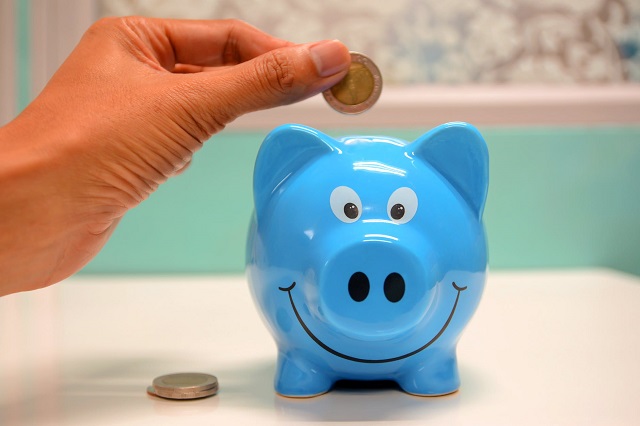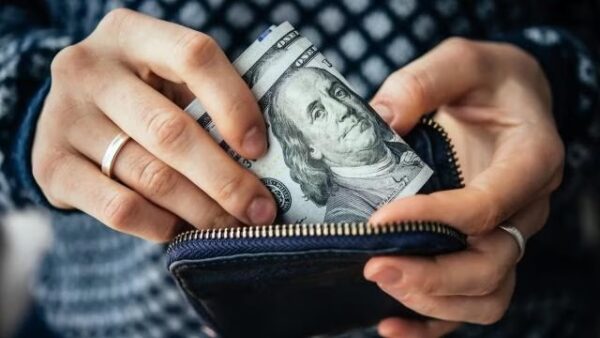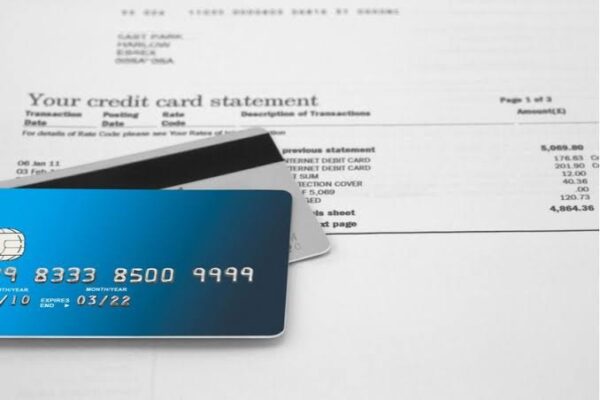65 Clever Money Hacks That Will Save You Hundreds of dollars

65 Clever Money Hacks That Will Save You Hundreds of Dollars
Do you know you can save hundreds of dollars with some clever money hacks? This may sound practically impossible to some people.
Smart people know there are more ways to save money than just cutting coupons and spending less.
If you don't use all the life hacks, it's like leaving free money on the table.
If you work hard and think outside the box, you may be able to save hundreds or even thousands of dollars a year with the right money hacks.
Also, if you take care of a few small jobs you've been putting off, you might find ways to make more money without doing any more work.
However, many people have improved their financial lives by deploying various money hacks. Therefore, if you want to save money, you need to figure out the best ways.
You may have struggled in the past to implement some budgeting plans and didn't follow through. It may be because you didn't do the right things.
The more you know about money, the more likely you are to be successful with it in the future.
So what are the best money hacks to save hundreds of dollars?
Good Read: 50 Best Ways To Make Money from Home
How do People Save Hundreds of Dollars Using Clever Money Hacks?
Most people know how important it is to save money, and they have made it a habit to save hundreds of dollars every day by doing easy things.
Aside from the simple ways to save money for any budget, how do these clever money hacks help people save hundreds of dollars?
There are many ways to save money that you should think about. However, if you aren't serious about saving money, it might be hard to use these money hacks.
If you want to save enough money for the future, you have to be smart and clever.
Clever Money Hacks That Will Save You Hundreds of Dollars
Saving money is the best approach when hoping for financial freedom. Be creative enough to know what is applicable and use it wisely.
There are several ways you can save money. But the best Clever Money Hacks that will save you hundreds of dollars consist of the following;
On Personal Finance Clever Money Hacks To Save You Hundreds of Dollars
1. Automate Your Savings

Now is the right time to automate your savings. If you are working, that's the wisest money hack to do.
It is easy to automate your savings from your salary and avoid spending all your income on regular expenses.
You can enroll in the retirement plans of your employee or ask your bank to automate the income for you.
If making a budget sounds as fun as looking for your records so you can give them to your accountant, you can take a deep breath. After that, it's easy to start keeping track of your money.
You can set up automatic savings and put your money on autopilot. But first, find an automatic savings software that works for you and uses that. For example, you can use your own worksheet, or you can get mine and use it.
But if you like technology, there are a lot of apps that can help you. These money-saving apps aim to do all the hard work for you. There are no receipts or rules; you push a button and are there.
2. Use the 30-day rule
The essence of using the 30-day rule is to regulate your purchasing goals. Consider examining every household item that makes it to your monthly purchasing plan. You can save a lot of money by simply deploying this rule in your regular expenses.
How Does the 30-Day Rule Work?
The 30-day rule is a clever money hack that will save you a huge amount of dollars, help you keep track of your spending, and stop you from buying things you don't need. How do you utilize the 30-day rule to save money:
- Figure out what you want to buy: Make a note of things you want to buy, whether you see them online or in a store.
- Wait 30 days: Wait 30 days before making the buy. This will give you time to consider whether the item is worth the money and whether it fits your budget.
- Rethink: After 30 days, you should think about your choice again. Ask yourself if you still need or want the thing and if the cost is worth it. You don't have to buy something if you're no longer interested or don't think it's worth it.
If you still want the item after 30 days, decide based on what you have realized. Consider how the buy will affect your budget if you can find it for less and if you need it.
If you follow the 30-day rule, you won't buy things on a whim and can instead make better decisions about how you spend your money. As a result, the 30-day rule can help you stay on budget and save money over time.
3. Get Yourself Free Checking with a Low Minimum
Finding free checking is getting harder and harder, but it's still possible.
Online banks are the best choice because many of them let you use ATMs outside of their network for free or at least give you a lot of money back. If you look hard enough, you can also find local banks. Don't give them that money!
There are several ways a free checking account with a low minimum amount can help you save money:
If you have a free checking bank account, you won't have to pay any fees to keep it running each month. This can save you money on bank fees and let you keep more of your money in your account.
Some free checking accounts require a minimum balance to avoid monthly fees, but the amount is generally lower than other types of accounts.
This means you won't have to keep as much money in your account to escape fees, which can help you save money.
Also, most checking accounts don't give you a lot of interest, but some may give you a small amount of interest on your sum.
This can help you make a little extra money on your savings over time.
A free checking account with a low minimum amount can be a good hack to save money on bank fees and other costs.
Just make sure to read the small print and understand the terms and conditions of the account before you open it to ensure it fits your needs.
4. Check out Your Local Credit Union.

They're not as big or flashy, but they have great rates and seem to care a lot more about the people in their area.
You can often find great deals on cars and mortgages when you join.
Yes, credit unions close to your home can help you save money. They usually offer various financial goods and services, such as savings accounts, checking accounts, loans, and credit cards.
Why Go For Your Local Credit Unions?
Credit unions are known for giving savings accounts and other financial goods with competitive interest rates.
This can help your savings earn more money over time. Also, many credit unions have lower fees and charges than traditional banks, which can help you save money on banking costs.
A lot of the time, credit unions also provide their members with financial education and tools to help them make smart choices about their money.
You can do this through workshops, online tools, and one-on-one financial counseling.
If you want to join a credit union, you should do some study to find one in your area that has the products and services you need.
You can also compare the rates and fees of different credit unions to find the best one for you.
5. Use Your FSA to Save on Medical Costs
A Flexible Spending Account (FSA) is a tax-advantaged account that lets you save money before taxes to pay qualifying medical costs.
FSA is a great way to save money on medical costs that meet certain criteria. You put money before taxes, so you get a discount immediately. You just need to use it all up every year.
How Do You Save Money with FSA?
Estimate your healthcare costs. At the beginning of the year, try to figure out how much you'll spend on healthcare costs like deductibles, copays, and medications over the year.
You can sign up during open enrollment if your workplace offers an FSA. You can choose how much of each paycheck to put into your account, up to the highest amount the IRS lets you do.
Also, remember you can use your FSA to pay for approved expenses like copayments, deductibles, prescriptions, and other healthcare costs throughout the year.
Keep your receipts and records of your healthcare costs in case you need to send them to your FSA supervisor to get reimbursed.
There is always some money left over at the end of the year from your FSA. Ensure they are not lost.
Some FSA plans may have a grace period or let you carry over up to $500 into the next year, so check with your FSA administrator for information.
An FSA is one clever money hack that will save you a lot on health care costs.
Putting money into your account before you pay taxes on it and then using that money to pay for approved expenses can lower your taxable income and lower the costs you pay out of pocket.
6. Always Ask for an Annual Free Waiver
If you've had the card for a few years and use it often, ask not to have to pay the yearly fee. It seems impossible, but it's very likely to happen.
You might be able to get your credit card's yearly fee waived if you have good credit and a good relationship with the company that gave you the card. Here are some ways you might not have to pay the annual fee:
Talk to the company that gave you the card and ask if they can get rid of the yearly fee.
If you have good credit and a history of making timely payments, they may be ready to waive the fee or give you a retention bonus to keep you as a customer.
You can also use your rewards points as dome credit cards let you pay the yearly fee with rewards points. Check the points program for your card to see if this is a choice.
Also, look for a card with no annual fee. If you don't use your credit card enough to cover the yearly fee, you might want to switch to one that doesn't have one.
If you can't get the annual fee waived and you don't use the card enough to support the fee, you can always cancel the card. Just know that getting rid of a credit card can hurt your credit score.
It's a good idea to carefully read your credit card's terms and conditions to know its fees and benefits.
If you're considering getting a credit card with an annual fee, compare the perks to the cost to see if it's worth it for you.
7. Try to Negotiate a Fee Away
Mistakes happen, and so do fees. If you do get one, it doesn't hurt to ask if you can get the fee waived or paid back. They might do it if you've been a user for a long time.
You can save a lot of money by negotiating fees.
Before negotiating a price, research to find out what other people are paying for similar products or services.
This will help you determine a fair price and make a good case for what you want.
It's important to be kind and polite when discussing a fee. However, remember that the person you're talking to is also trying to do their job, and being pushy or confrontational isn't likely to get you what you want.
Tell the vendor or anyone why you want the fee to be lower. For example, you might be having trouble with money or have been a loyal customer for a long time.
Regardless of the reason, make sure to say it quietly and clearly.
Even if the other person can't lower the fee as much as you'd like, they might be ready to work out a payment plan or give you a discount on services in the future. So be willing to make these kinds of deals.
It is also important to get the negotiation in writing. If you do come to an understanding, make sure to get it in writing.
This will help stop any future mistakes or disagreements or provide a piece of evidence to rely on should things go south.
Remember that negotiating fees is not always possible, but it's a clever money hack that is always worth a shot. You might be able to save money on the things and services you use every day if you try
8. Increase Your Insurance Deductible

Increasing your deductible is similar to dropping collision and comprehensive insurance because it shifts some of the risk away from your insurer and onto you.
It will also lower your bill, so consider your choices and decide if you are willing to take that risk.
Increasing your insurance deductibles will save you hundreds of dollars on your premiums, but you should weigh the possible savings against the risk of paying more out of pocket if you have to file a claim.
Before increasing your insurance deductibles, check how much money you can pay out of your pocket.
A deductible is the amount you must pay out of your money before your insurance kicks in. You might save money on your premiums if you can afford a bigger deductible.
Additionally, look at the insurance fees you're paying now and compare them to what you'd pay if you raised your deductible.
Find out if the chance of a higher out-of-pocket cost is worth the possible savings.
You might want to raise your deductible if you have a good backup fund and don't think you'll need to file many claims.
But a bigger deductible might not be the best choice if you have a long-term illness or other health problems.
Raising your deductible could be a good idea if you don't mind taking on more risk in exchange for lower rates.
But a bigger deductible might not be the best option if you don't like taking risks.
Before you make any changes to your coverage, you should think carefully about your finances and how willing you are to take risks.
9. Use Billpay or Internet Payments.
Using Billpay or Paypal alternatives will save you tons of money because no one will need to steal your bank information. Also, you save money on stamps with these best online payment apps.
With bill pay and online payments, you can pay your bills from anywhere, anytime, without worrying about going to the bank and wasting money on transport.
Most of the time, electronic payments are handled much faster than paper checks.
This means that your payment will be received and processed faster, which can help you avoid late fees and keep your accounts in good order.
Paper checks are often less safe than online payments because they can be lost or stolen.
However, many online payment systems also have security features like encryption and two-factor login to help keep your financial information safe.
Most of the time, you can set up automatic payments to ensure you never forget to pay.
Many online payment systems also let you see what you've paid and how much you've spent, which can help you budget and plan your finances.
Using Billpay or online payments can be an easy, quick, and safe way to pay your bills and keep track of your money.
10. Compare Your Insurance Rates
Most people never cared to check on the insurance rates. However, comparing your insurance rate gives you an added advantage towards finding the best insurance policies that match your status.
Look at your existing policy and make a list of what it covers, as well as your deductibles and premiums.
Comparing your insurance rates and different coverage will help you think about what you need now and what you might need in the future and make a list of the types of security you need.
This could include coverage for liability, accident, comprehensive, and injuries.
Remember to get quotes from different insurance providers to compare rates. You can do this by calling insurance companies directly or by using online comparison tools.
Additionally, ask each insurance company if they offer any discounts. This could happen if you bundle your insurance, have a good driving record, or belong to a certain group.
Never be afraid to review and switch policies.
Once you've compared rates and coverage, you can decide whether to keep your current policy or move to a new provider. Before making a final choice, make sure to read the policy carefully.
Remember that comparing insurance rates is an important money hack, but still ensure you have the coverage you need in case of an accident or something else unexpected.
11. Review Your Card Statement After Each Month

Users of credit or debit cards are expected to review their card statements at the end of each month. This action will enable you to understand your spending habits.
You can decide whether to cut down on your expenses or increase your savings.
Yes, looking at your credit card balance every month can help you save money. Here are some ways to look over your statements:
Check for mistakes and ensure all the charges on your bill are correct. If you find mistakes or charges you didn't make, you should call your credit card company immediately to challenge them.
Find recurring charges like fees or memberships, then think about whether you still need or use these services and if you can get rid of the ones you don't need.
If you have a credit card with rewards, check your monthly statement to see how much you made in rewards.
Consider whether you're getting the most out of your rewards and if there are ways to make more.
Some cards offer you the bonus of getting paid to spend money. This implies that you don't have to spend without getting rewarded.
For example, some cards can offer you almost 5% cashback or more when you purchase a particular item.
You can ask your bank for unique benefits attached to any card before using them to make your purchase.
● Always use the ATM at your bank.
https://paypant.com/65-clever-money-hacks-that-will-save-you-hundreds-of-dollars/
Comments
Post a Comment